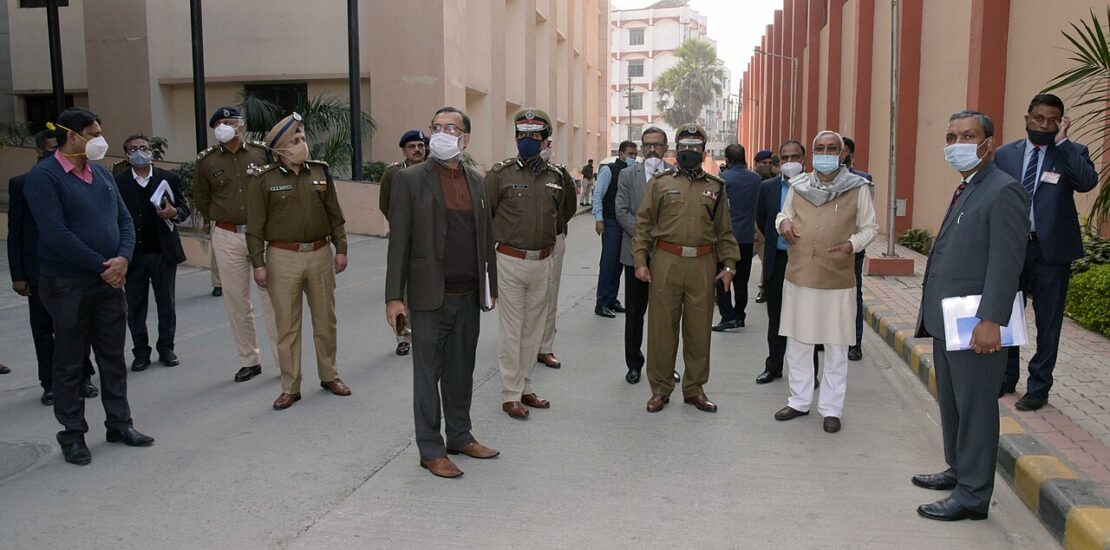Supreme Court Clarifies Preliminary Inquiry Rules for FIR Registration in 2025
- October 2, 2025
- Posted by: MF Khatri
- Categories: Police, Supreme Court

The
Supreme Court delivered crucial guidance on when preliminary inquiries are mandatory before FIR
registration, addressing growing concerns about misuse of criminal law processes under India’s
new criminal codes. These landmark rulings establish clear parameters for law enforcement
agencies and provide essential protections for citizens navigating the transformed criminal
justice landscape.
The Pradeep Sharma
Precedent: Corruption Cases Clarity
In Pradeep
Nirankarnath Sharma v. State of Gujarat, the Supreme Court reinforced that corruption
cases with clear allegations don’t require preliminary inquiries. The retired IAS officer
attempted to secure a blanket protection requiring preliminary inquiries for all future FIRs
against him, but the Court rejected this approach.
The
Court emphasized that serious offences with specific allegations demand immediate registration
under the established Lalita Kumari precedent. This ruling prevents accused
persons from manipulating legal processes to delay or avoid criminal proceedings in cases where
evidence clearly indicates potential wrongdoing.
The
judgment clarifies that preliminary inquiries serve a specific purpose: determining whether
cognizable offences have occurred when facts remain unclear or allegations appear vague. They
cannot be used as blanket protection mechanisms for individuals seeking to avoid legitimate
criminal investigations.
Speech-Related Offences:
Enhanced Constitutional Protection
The Imran Pratapgarhi v. State of Gujarat case established heightened
safeguards for freedom of expression under the new criminal codes. When the Congress MP’s poem
was deemed potentially inflammatory, the Court ruled that speech-related offences punishable by
3-7 years imprisonment require mandatory preliminary inquiry under the Bharatiya Nagarik
Suraksha Sanhita 2023.
This
distinction recognizes the chilling effect that immediate FIR registration can have on free
speech and political discourse. Articles 19(1)(a) and 19(2) provide
the constitutional foundation for balancing free speech with public order concerns, requiring
courts to apply stricter scrutiny when expression rights are at stake.
The
ruling acknowledges that speech-related cases often involve subjective interpretations and
contextual analysis that benefit from preliminary investigation before formal criminal
proceedings begin. This approach protects legitimate political discourse while maintaining law
enforcement’s ability to address genuinely problematic content.
Statutory Framework Under
New Criminal Codes
Section
173(3) of the Bharatiya Nagarik Suraksha Sanhita provides specific guidelines for
preliminary inquiries, particularly for cases where facts remain unclear. This provision
represents a significant evolution from the Criminal Procedure Code 1973, incorporating modern
understanding of investigative procedures and constitutional protections.
The
new criminal codes recognize that not all complaints warrant immediate FIR registration,
particularly in cases involving complex factual situations, commercial disputes, or potential
misuse of criminal law for civil matters. The preliminary inquiry mechanism serves as a filter
to prevent frivolous or malicious prosecutions while ensuring genuine crimes receive proper
attention.
Legal
practitioners must understand these nuanced distinctions to effectively advise clients on
complaint strategies and defense approaches under the reformed criminal justice system. The
codes balance efficiency in crime investigation with protection against abuse of criminal
processes.
Expanded Categories
Requiring Preliminary Inquiry
The Lalita Kumari precedent continues governing FIR registration, requiring
immediate registration for cognizable offences with clear allegations. However, exceptions now
include matrimonial disputes with vague allegations, commercial offences involving contractual
disagreements, medical negligence cases requiring expert analysis, corruption allegations
lacking specific details, and significantly delayed complaints.
These
categories recognize that certain types of cases benefit from preliminary fact-finding before
formal criminal proceedings begin. This approach prevents the criminal justice system from being
overwhelmed by civil disputes disguised as criminal matters while ensuring genuine crimes
receive appropriate attention.
Courts
have consistently emphasized that preliminary inquiries must be completed expeditiously and
cannot be used to indefinitely delay legitimate criminal proceedings. The inquiry serves a
specific investigative purpose rather than providing permanent protection from prosecution.
Practical Guidelines for Law
Enforcement
Police
officers must now apply sophisticated judgment in determining when preliminary inquiries are
appropriate versus when immediate FIR registration is required. Clear allegations supported by
specific facts generally mandate immediate registration, while vague or potentially false
complaints may warrant preliminary investigation.
The
Supreme Court’s guidance helps standardize police responses across jurisdictions, reducing
arbitrary decision-making and ensuring constitutional protections are consistently applied.
Training programs for law enforcement personnel must incorporate these distinctions to ensure
proper implementation.
Constitutional Balancing Act
The
Court’s nuanced approach ensures that legitimate expression receives protection while preventing
abuse of legal processes. Article 21’s due process protections require that
criminal law not be weaponized against citizens exercising constitutional rights, particularly
freedom of speech and expression.
These
rulings provide essential clarity for police officers, legal practitioners, and citizens
navigating India’s evolving criminal justice landscape under the new criminal codes. The balance
struck between efficient crime investigation and constitutional protection represents a
significant advancement in criminal jurisprudence.
Legal
practitioners specializing in criminal defense must master these distinctions to effectively
represent clients in preliminary inquiry proceedings and FIR registration disputes.
Understanding when preliminary inquiries are mandatory versus discretionary has become crucial
for criminal practice in modern India.
